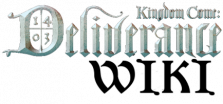The crimes considered the most severe were murder, incest, counterfeiting money, sorcery, burglary and large-scale theft. Smaller, but still officially dealt-with offences included disorderly conduct, public drunkenness, fraud, non-payment of debts, slander and libel.
Capital crimes were punished by hanging (the most common form of execution of men, mainly for recurring crimes) or by beheading (reserved for the nobility). For aggravated murder the punishment was the breaking wheel, which was left on the gallows hill complete with the corpse, as a warning, until the body decomposed completely. Other options for execution were burning at the stake (for heretics and forgers), drawing by horses, quartering and impaling. Women were typically drowned, or in retribution for killing a newborn, buried alive. Before execution, the offender's right hand might be chopped off on the block. For felonies, punished was meted out even on the way to the scaffold – the criminals were dragged behind a horse, tied by the legs or in a sack made of cowhide.
Some less serious wrongdoings were redeemable by payment of a fine. The penalty levied went to the town coffers, or part went to the aggrieved party in compensation. Redeeming oneself for murder was possible, but entailed paying recompense (‘Weregild’) to the survivors, and putting up a conciliation cross.
The nobility was virtually beyond the reach of justice, and the bailiffs had no power to touch them, even for felonies. Only the King could condemn and punish them (which did indeed happen).
Some public order offences were punished by public contempt, in the stocks on the town square. Worse than the ridicule was the guilty party’s lifelong loss of honour, which also dragged down their family.
Generally though, it can be said that in times of peace the Middle Ages were much safer than might appear in fiction. There was often much less crime than today.
The crimes considered the most severe were murder, incest, counterfeiting money, sorcery, burglary and large-scale theft. Smaller, but still officially dealt-with offences included disorderly conduct, public drunkenness, fraud, non-payment of debts, slander and libel.
Capital crimes were punished by hanging (the most common form of execution of men, mainly for recurring crimes) or by beheading (reserved for the nobility). For aggravated murder the punishment was the breaking wheel, which was left on the gallows hill complete with the corpse, as a warning, until the body decomposed completely. Other options for execution were burning at the stake (for heretics and forgers), drawing by horses, quartering and impaling. Women were typically drowned, or in retribution for killing a newborn, buried alive. Before execution, the offender's right hand might be chopped off on the block. For felonies, punished was meted out even on the way to the scaffold – the criminals were dragged behind a horse, tied by the legs or in a sack made of cowhide.
Some less serious wrongdoings were redeemable by payment of a fine. The penalty levied went to the town coffers, or part went to the aggrieved party in compensation. Redeeming oneself for murder was possible, but entailed paying recompense (‘Weregild’) to the survivors, and putting up a conciliation cross.
The nobility was virtually beyond the reach of justice, and the bailiffs had no power to touch them, even for felonies. Only the King could condemn and punish them (which did indeed happen).
Some public order offences were punished by public contempt, in the stocks on the town square. Worse than the ridicule was the guilty party’s lifelong loss of honour, which also dragged down their family.
Generally though, it can be said that in times of peace the Middle Ages were much safer than might appear in fiction. There was often much less crime than today.
